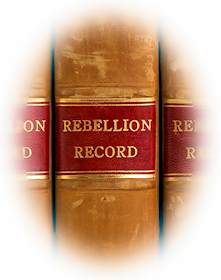–Emerson Etheridge, of Tennessee, addressed the citizens of Louisville, Ky., on the great questions which are dividing the South at the present time. He commenced his address with an allusion to the distracted condition of the country, congratulating himself and his audience that he stood upon Kentucky soil, a State that was yet loyal to the Union. He clearly proclaimed himself for his country, first, last, and forever. Having but recently come from a State in which anarchy reigned supreme, he could the better appreciate the blessings of political liberty which were yet vouchsafed to Kentuckians, and which he felt Kentuckians had the patriotism, the gallantry, and the power to perpetuate. He drew a picture of Kentucky in her proud position as a sister in the Union of the States, of her wealth, of her usefulness as an asylum for the oppressed of both sections of our unhappy and divided country, and of her grandeur in after days when she has safely outridden the storm which wrecked the frailer sisterhood around her. While he dealt deadly blows to the apologists of dissolution, he spoke cheering words of comfort and assurance to the friends of the Union. He was withering in his denunciation of rebellion, powerful in argument, ready and illustrative in anecdote, and fervid and glowing in eloquence.–Louisville Journal, May 28.
–General Beauregard issued orders in Charleston, relinquishing command of the forces around Charleston to Col. R. H. Anderson.–Augusta Chronicle, May 28.
–In the case of John Merryman, a secessionist arrested in Baltimore and detained a prisoner in Fort McHenry, a writ of habeas corpus was issued by Judge Taney, made returnable this day in the United States District Court. Gen. Cadwallader declined surrendering the prisoner till he heard from Washington, and an attachment was issued for Gem Cadwallader.–N. Y. Times, May 28.
–The United States steamer Brooklyn arrived off the Pass L’Outre bar at the mouth of the Mississippi, and commenced the blockade of that river.–N. O. Picayune, May 28.
–Brigadier-General McDowell, U. S. army, took command of the Union forces in Virginia, and relieved Major-General Sandford, N. Y. State Militia.–N. Y. Herald, May 28.
–George W. Thompson, one of the judges of the Circuit Court of the State of Virginia, issued a proclamation ordering the rebels in the western part of that State to disperse. Peculiar interest attaches to the document from the fact that one of Judge Thompson’s sons, W. P. Thompson, a young lawyer, resident at Fairmont, is aide-de-camp to Gem Thomas S. Haymond, commander of the confederate forces in Western Virginia, and the leader of the first company which marched on Grafton. Another of his sons is also a secessionist, and a private in the same company.–(Doc. 201.)
–The blockade of Mobile (Ala.) harbor was commenced. The Natchez Courier of to-day says:–”Fort Morgan welcomed the blockading fleet by displaying the U. S. flag, with the Union down, from the same staff, and below the confederate flag.”
–Col. A. Duryea. was placed in command of the camp near Fortress Monroe, by Major-General Butler.–(Doc. 202.)
–The Twentieth N. Y. Volunteer Regiment left New York city for the seat of war.–(Doc. 203.)
–The First Regiment of Virginia Volunteers, Col. Kelly, stationed at Wheeling, Va., left that place at 7 A. M., and moved towards Grafton. After their departure, the Sixteenth Ohio Regiment, 1,000 strong, stationed at Bellaire, Ohio, under command of Col. Irvine, crossed the Ohio and followed Col. Kelly’s command. The Fourteenth Ohio Regiment, Col. Steadman, crossed the Ohio, at Marietta, about the same time, and occupied Parkersburg. At midnight the rebels evacuated Grafton in great haste.–(Doc. 104.)
–The Washington Artillery of New Orleans, La., left that city for Virginia. Previous to their departure, they were addressed by the Rev. Dr. Palmer.–(Doc. 205.)
